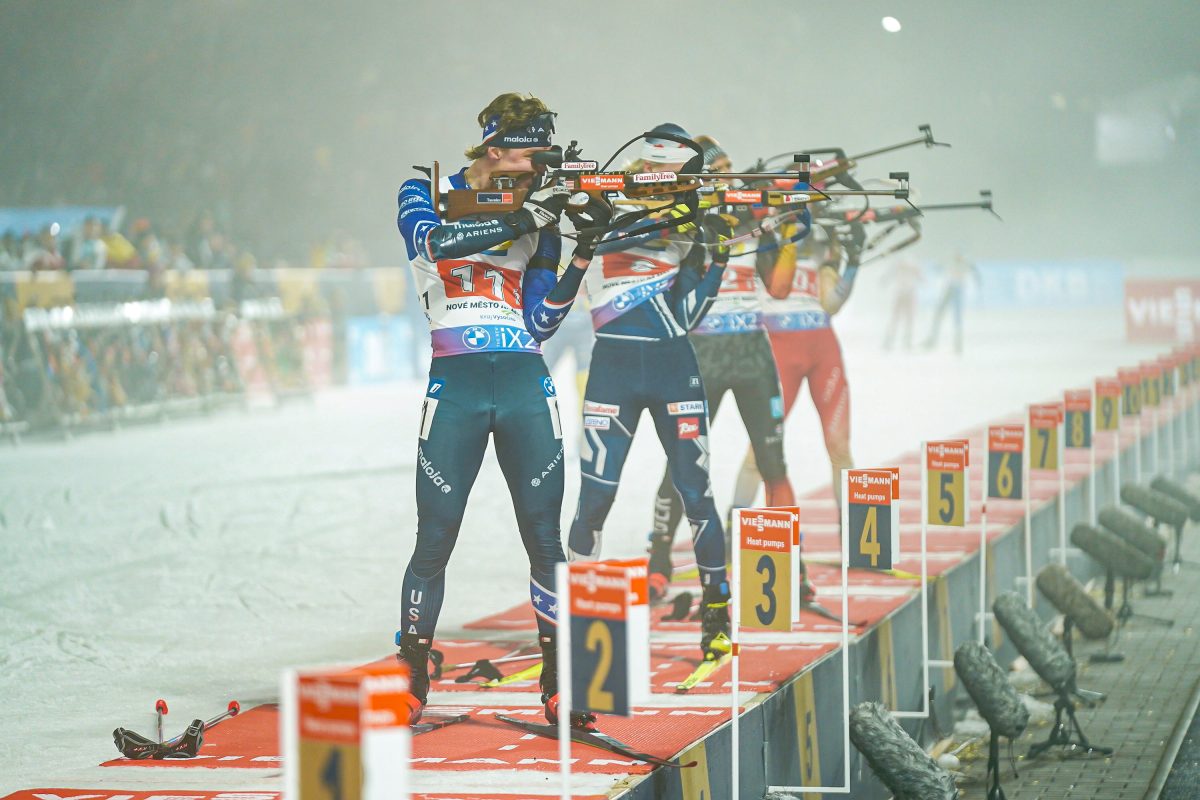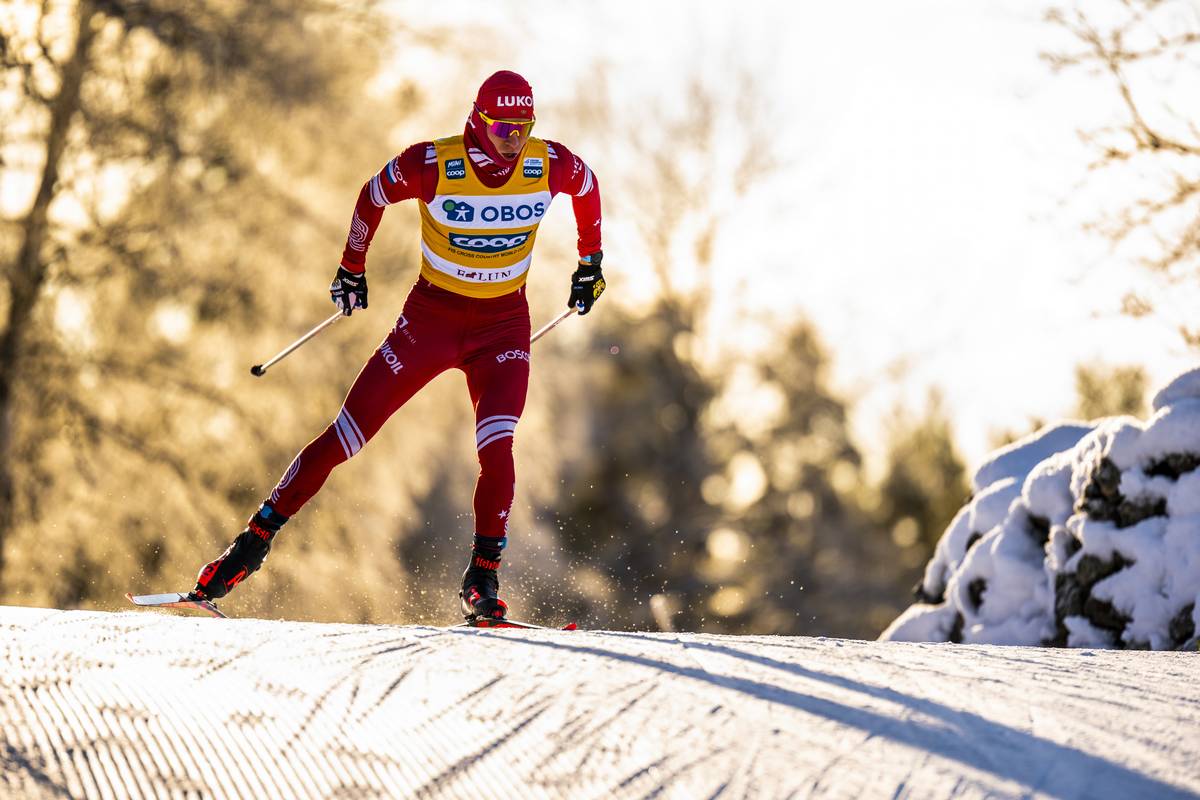
This is the third part of a three-part series on Russia’s Alexander Bolshunov. You can find part one and part two here.
This season, the Alexander Bolshunov vs. Johannes Høsflot Klæbo show has been largely sidelined due to Norway pulling from cross-country World Cups due to the coronavirus. When the Norwegians returned to the World Cup in Lahti, the wait proved a pressure cooker of tension.
When Bolshunov fell in the closing stages of the skiathlon, taking out Hans Crister Holund of Norway, there was much finger-pointing at the finish. “The Norwegian tactics worked. On the last descent, Holund fell on me, [we] hit the net, so the three ran away. No chance. This is not on purpose, but they can think it over in advance,” said Bolshunov.
Bolshunov’s coach Yuri Borodavko suggested that he did not fall of his own accord and that it was curious because it happened in “the grey zone” without TV crews.
Holund, for his part, was angry, “Bolshunov drove into me in one turn there…I just asked ‘why’. What’s the point? That was not where the race was decided.”
Another Norwegian, Emil Iversen, expressed criticism of Bolshunov’s bullishness in races and suggested it was getting him into regular trouble on the ski courses. “He does not see people and just walks straight through [them].”
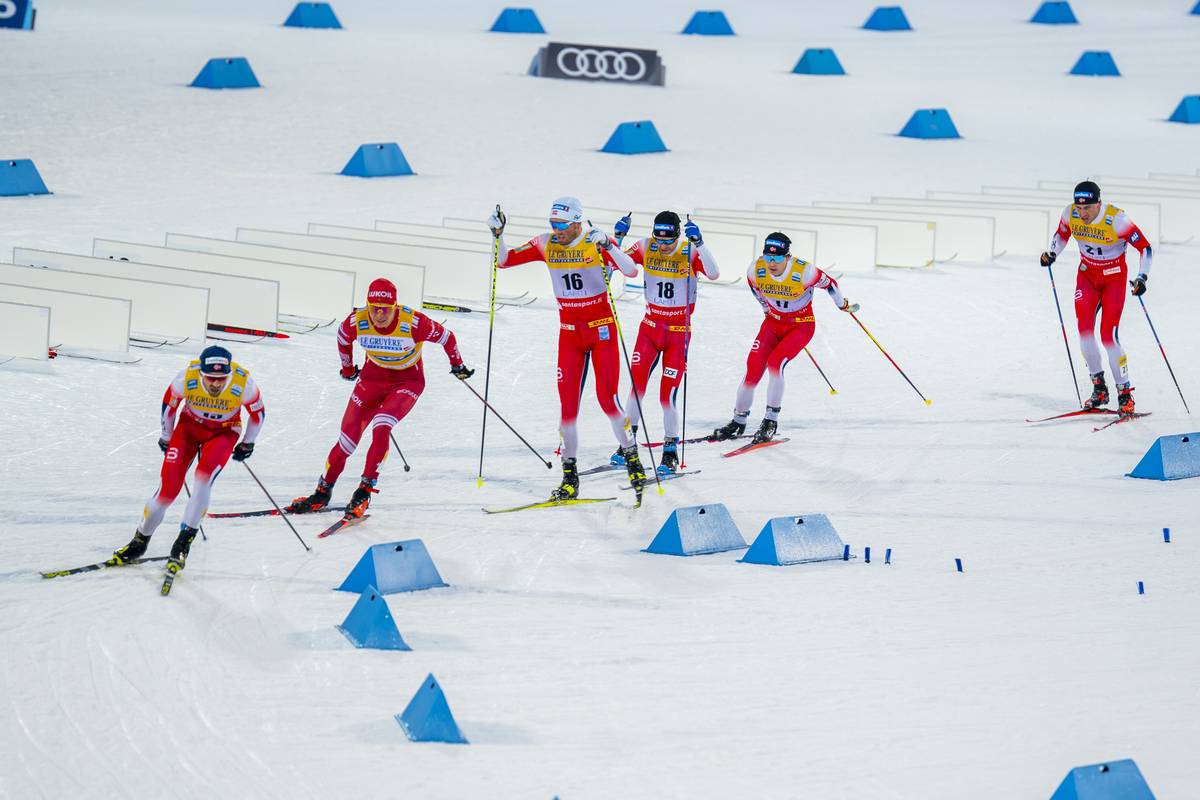
The relay in Lahti the following day was set to be a pre-World Championship showdown between Russia and Norway. The race instead turned out to be a contest for silver—as Norway dominated—with Bolshunov and Finland’s Joni Mäki coming down to a sprint. Mäki moved towards Bolshunov’s lane causing the Russian to scrub speed. Bolshunov’s subsequent body check of Mäki at the finish line became the headline. While audiences in North America and Europe found his behavior shocking, Bolshunov’s physicality was supported in some quarters of Russia. (Bolushunov and his team were officially disqualified.)
Perhaps the strongest words of support came from Bolshunov Sr. who said, “If you don’t answer them, they will humiliate Russia.” He elaborated, saying, “It was all about emotions, I understand him perfectly, it’s okay. For me, these are scoundrels—like he did not see and shifted. He just brazenly removed Sasha from the track and drove him into billboards. The video shows that Sasha did not touch him first. I’m on the side of my son, maybe I would have acted even harder.”
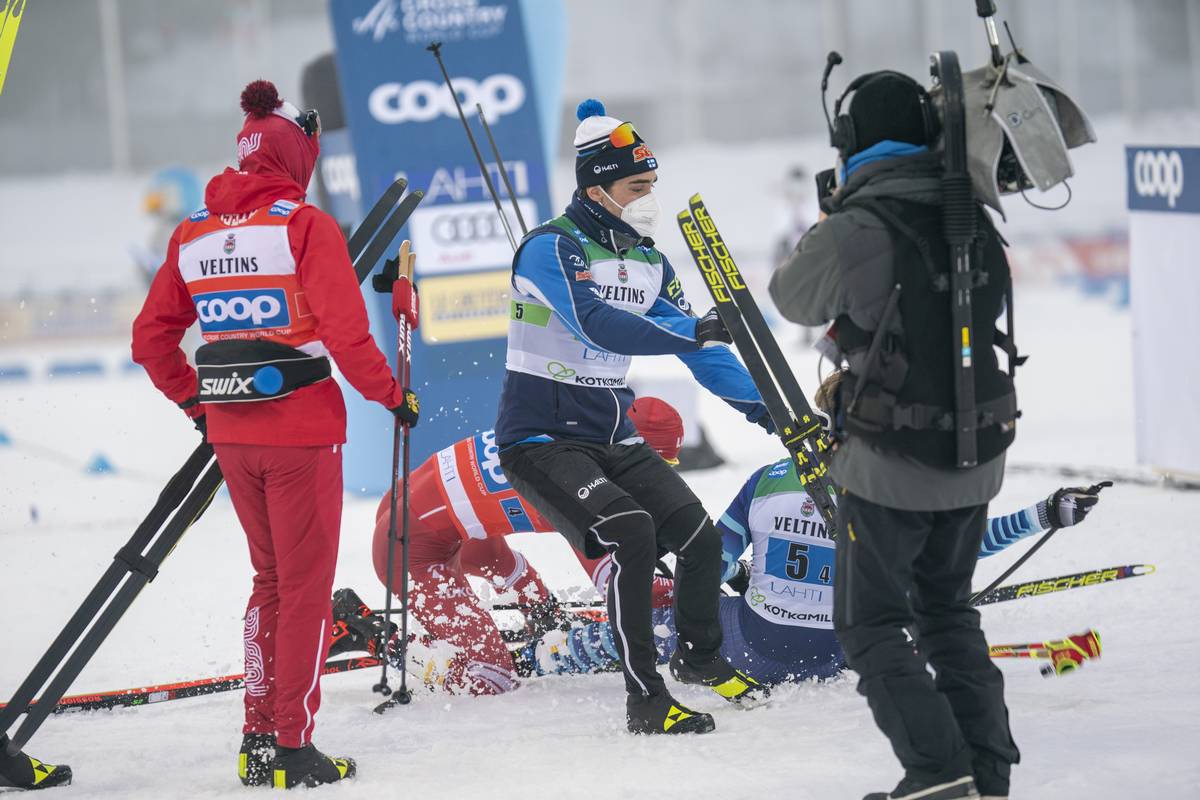
“I always stand for pure struggle, and when such bestiality occurs, I understand that it is, to put it mildly, ugly…You just need to approach in Russian and give it [to them] in the face. Unfortunately, this cannot be done.”
Retired biathlete Anfisa Reztsova said she, “would also hit with a stick! I would give him a stick on the back so that he would not cross my track.”
Elena Välbe backed Bolshunov but chided him for his actions. “The fact that after the finish line he drove into the crowd where the Finn was – it is clear he did it on purpose. Yes, this is unsportsmanlike behavior, but I’m on Alexander’s side. The Finn acted like a pig, I can’t say otherwise. Of course, there will be no sanctions from our side.”
Others called for a calming down of the violent rhetoric directed at Mäki. Russian biathlon and cross country commentator Dmitry Guberniev said, “the words of both the entourage, and the veterans, and anyone else…look monstrous. This is the absolute path to a dead end. This is set for Russian skis and set for Bolshunov.”
While Russian ski fans were supportive of Bolshunov, their sporting journalists were not, calling his action a disgrace.
While some skiers, such as Iversen, took to social media to condemn Bolshunov, Klæbo was more clear-eyed and remarked that he “recognized myself in him.”
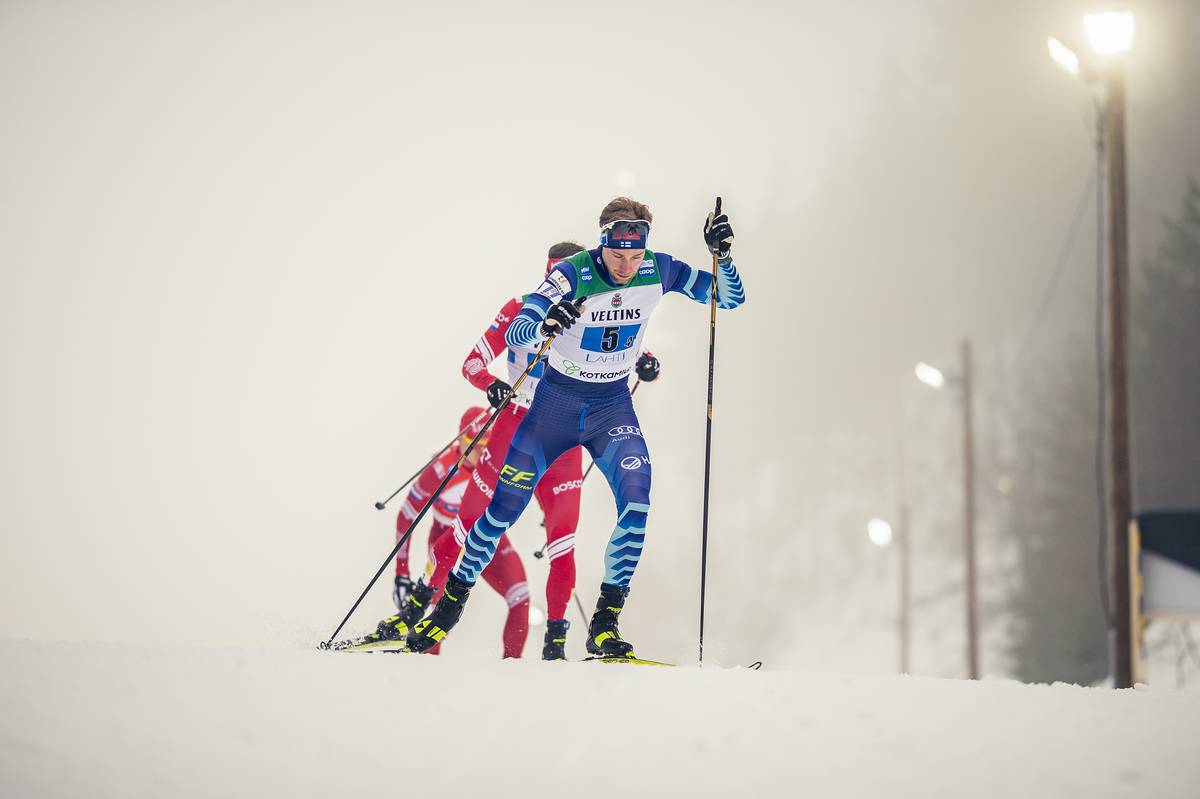
Mäki, who celebrated his 26th birthday that day by winning a silver medal for Finland was greeted to a barrage of hostile posts on his social media from Russian ski fans with comments such as, “lucky that this is not biathlon and the athletes do not have rifles.”
A hallmark of recent years has been the vocal presence of Russian ski fans and supporters taking to social media to vent their frustration and at times disturbing ideas of retribution over sporting disagreements. Natalia Nepryaeva has tried to call off her legion of supporters who continuously harass Johaug. “…it is sometimes unpleasant when Russian fans start writing that she is such and such – a doping player, she won again. It’s low. Why do you write like that?” asked Nepryaeva. “We are then treated badly because of such sofa critics.” Nepryaeva herself never communicates with her fans online, saying that if she did, it would be “a complete mess.”
To top off a bizarre day for the sport, two Finnish citizens reported Bolshunov’s actions through the Häme Police Departments’ online crime reporting system. An open case against him was confirmed by Criminal Commissioner Martti Hirvonen. When the news broke it was misconstrued in a variety of ways, with confusion over whether Bolshunov had been detained in Finland, and sensational headlines that he faced a nearly three-year prison sentence for assault. Mäki himself did not wish the case to continue, and Hirvonen expected the matter to be resolved soon.
Bolshunov offered an apology, and an unconvincing explanation that his binding broke, causing him to accidentally hurtle into the Finn. Mäki for his part accepted the apology and seemed eager to move on from the issue.
Bolshunov remarked on the post-relay episode in a brief interview on the subject with Norwegian broadcaster NRK. It was unusual for the Russian skier to speak only to the Norwegian channel, and not Russian or, especially in this case, Finnish TV. It may have been a subtle indication by Bolshunov that in skiing, all roads lead to Norway. Avoiding further punishment required damage control in the Norwegian market, particularly now that Bolshunov was the face of Swix’s new fluoro-free wax. Bolshunov has often been preoccupied with NRK, and his sour comments and theatrics have usually been meant for one audience in particular: Norwegians.
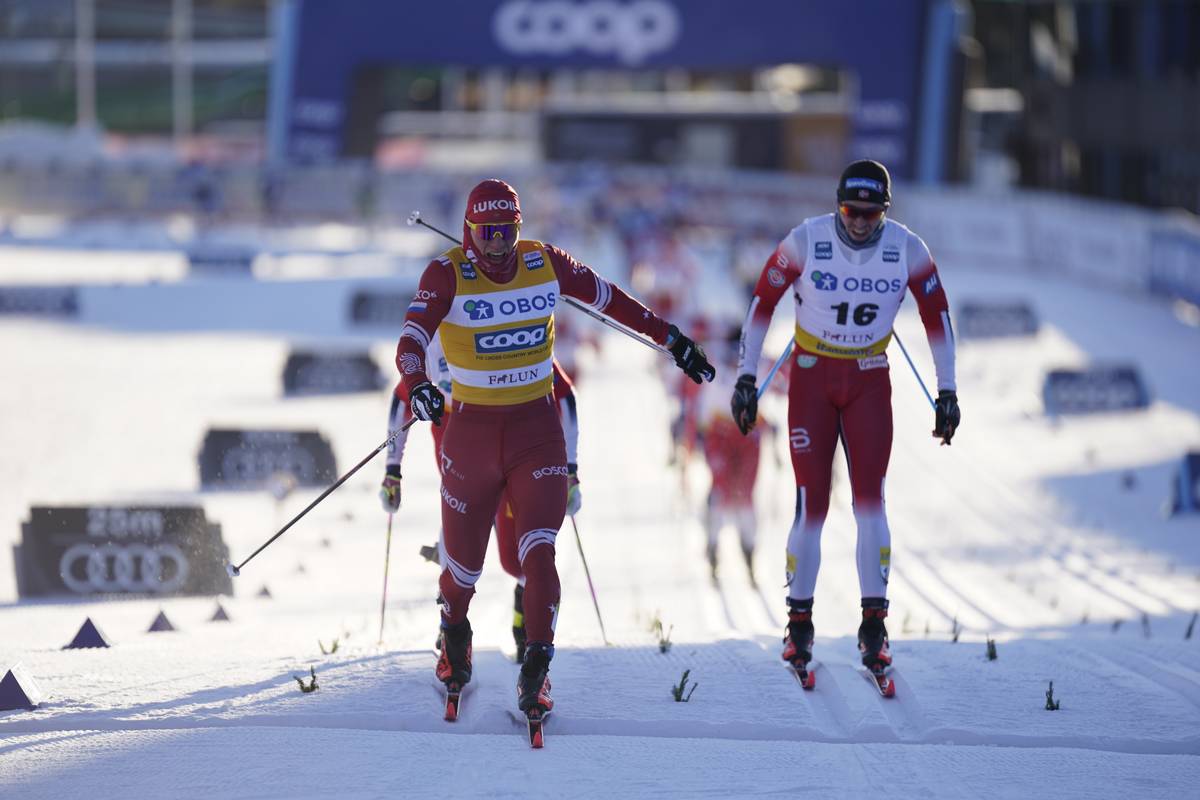
Another vein opened up in the post-Lahti landscape as well. Bolshunov’s father commented that his son had always wanted to be a biathlete, and hinted he was considering switching sports. This inspired a frenzied slew of speculation and headlines that made Borodavko chuckle about the prank being taken too seriously. A more shrewd reading would see it as a subtle reminder to FIS that they need Bolshunov more than he needs them.
Biathlon captures a much higher share of the Russian television market than cross country, despite its less successful team, and would undoubtedly be a profitable move for Bolshunov provided he shoots as well as his father claims.
Surprisingly, prior to the 2019/20 season, cross-country skiing was only available in Russia via subscriptions. That changed last winter when 15 races were shown on public TV. This year, Match TV!, the state-sponsored sport channel, will show all the World Cup races. One suspects the Bolshunov bump has something to do with this.
Without him, the FIS World Cup would lose its marquee event that is likely to last for many more years: Bolshunov vs Klæbo. The comments about switching to biathlon were likely a shot across the bow of FIS as it faced pressure from some quarters to take a stronger stand against Bolshunov’s behavior in Lahti.
On February 11th, authorities in Finland announced the case against Bolshunov would not be prosecuted. Without Mäki willing to ask for punishment or compensation there was no cause to proceed. The police had found the incident rose to the level of “mild assault.” The report stated that Mäki’s injuries were minor and that in the context of a competitive sporting event, Bolshunov had acted impulsively. The case is closed.
The aftereffects, however, remain to be seen. Bolshunov’s sponsors have stuck with him for now. He knows he will be closely watched at the World Championships, where any such behavior would, in the words of Markus Cramer, “be a disaster.”
The incident has once again highlighted the gulf of understanding between Russian and Western athletes over the rules of the game. One gets the sense there are two ski races happening at once, with different senses of fair play. Even the stakes of the game are perceived differently. The idea that Mäki’s questionable move was a humiliation for Bolshunov and Russia only makes sense when you consider their aggrievement over the past few years.
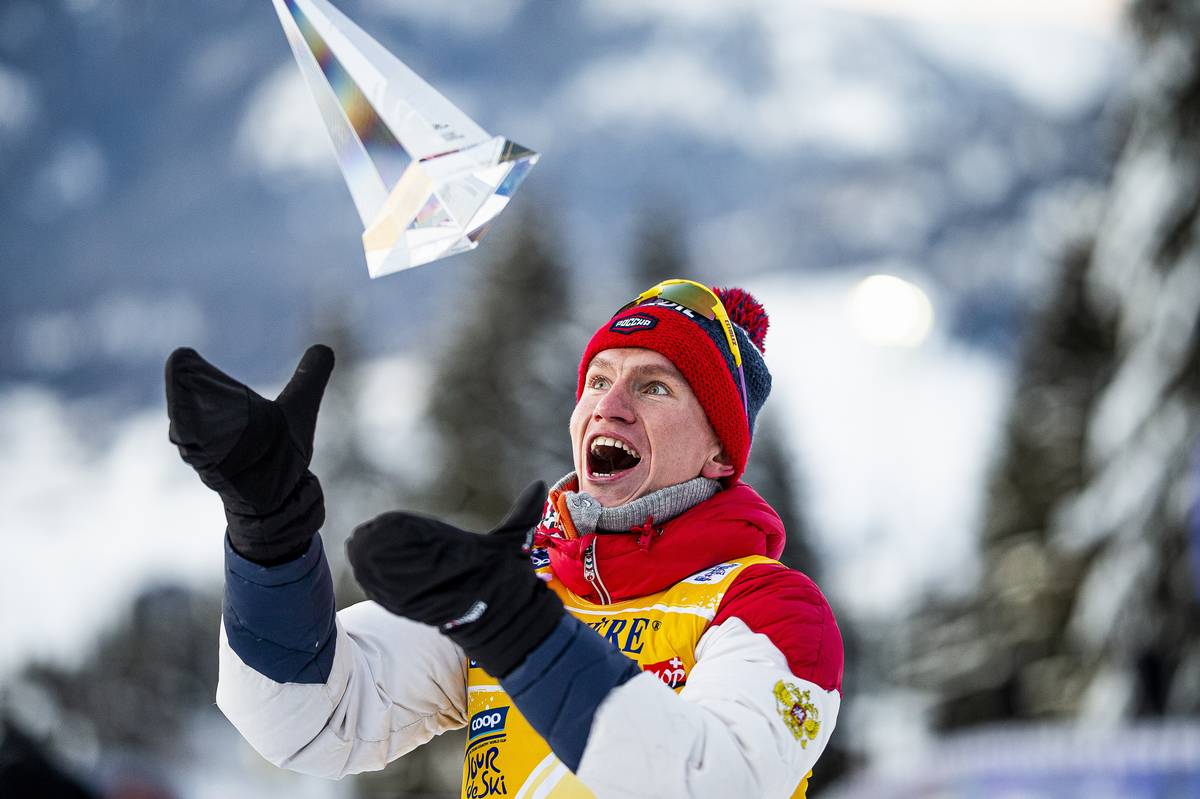
Grievances
The misunderstanding between the Russian and Norwegian camps stretches back years, but in recent times it has centered on a few issues in particular.
One is the World Cup calendar itself. Elena Välbe has railed at the ability of Norwegians, with an outsize presence on the FIS council, to shape the events of the World Cup in ways that suit their skiers, namely more sprints and mass start races, favoring Klæbo over Bolshunov. Conversely, Välbe herself has conceded that these events are favored largely because they’re a more popular product for television.
The inconsistent enforcement of rules by race juries is seen as grossly biased against their skiers, with warnings and disqualifications against Russian skiers while others, particularly Norwegians, avoid penalties. When asked about whether the judges are always on the side of the Norwegians, Legkov said, “There is some truth to this…the Russian always remains guilty. If the Norwegians have a violation, it is played up in such a way that you really start to think that you were wrong, and not them.”
Then there is Norway’s immoderate use of asthma medicine. It goes to the core of the contention the Russian skiers feel of a double standard permeating their sport.
Välbe has called the therapeutic use exemptions “legalized doping”, saying, “perhaps the whole problem is in the cold Scandinavian air, otherwise how can one explain that 70% of Norwegian champions have asthma?”
Russians wondered aloud why they were “banned” from the Olympics in PyeongChang while the Norwegian ski team brought a treasure trove of more than 6,000 doses of asthma medicine to South Korea, along with questionable nebulizers and atomizers to speed up the process. It was an amount far in excess of other teams and amounted to hundreds of doses per athlete.
New research suggests overconsumption of salbutamol can aid performance by as much as 5%, not far off from the 6 – 9% that EPO is often considered to offer elite athletes.
In the eyes of Russian ski fans, this approach amounted to little more than the Norwegians own systematic doping scheme, made all the more infuriating by the ease at which their athletes received therapeutic use exemptions (a method that Välbe does not endorse for her athletes) and the righteous indignation of declaring that these practices are necessary to protect their athletes’ health, an idea that has not been consistently supported by research.
Russians even began to suspect the credibility of Norway’s publicized training methods. Where the Norwegian team projects an air of being an open book, the Russians saw misdirection. “When they spread new rumors, many thoughts arise,” said Legkov. “Recently it has appeared from them that training indoors with a temperature of 40 degrees [104 F] is the same as training in the mountains. And you subconsciously think: ‘Maybe this is really so?’ But you also think: ‘Or maybe they threw it out on purpose so that others begin to train in this closed room with a temperature of 40 degrees?’”
They felt belittled by the decision to remove their flag and anthem from the Olympics, a pointless measure for assuring clean sport that has been portrayed in Russia as the cost of a tit for tat political game with the West. The decision to ban Sergei Ustiugov from the 2018 Olympics shortly before they began, and again just before the 2019 World Championship without explanation was seen as an injustice. Välbe has described the rulings against them as symptoms of a larger conflict. “In war, all means are good, and sport is also war,” Välbe said. “Well, cross-country skiing is part of sport.”
Since the McLaren report was released, Russians have been suspected of doping rightly or wrongly at every turn and indeed, more revelations continue to be forthcoming. However, Norway, despite having two of its stars in Sundby and Johaug sanctioned, banned, and in Sundby’s case, stripped of titles for doping offenses, sees no presumption of guilt for its athletes. Despite the team’s acknowledged program of aggressive asthma medication use, in many circles, Norway maintains its sterling reputation as the gold standard in the sport.
Finally, the Russians perceive the Norwegian team tactics on behalf of their leader as a violation of the sport’s essence: open competition. Bolshunov clearly believes he is targeted, and occasionally taken out, by Norwegian skiers. Joni Mäki’s closing off Bolshunov in Lahti went too far for Bolshunov, at least on that day.
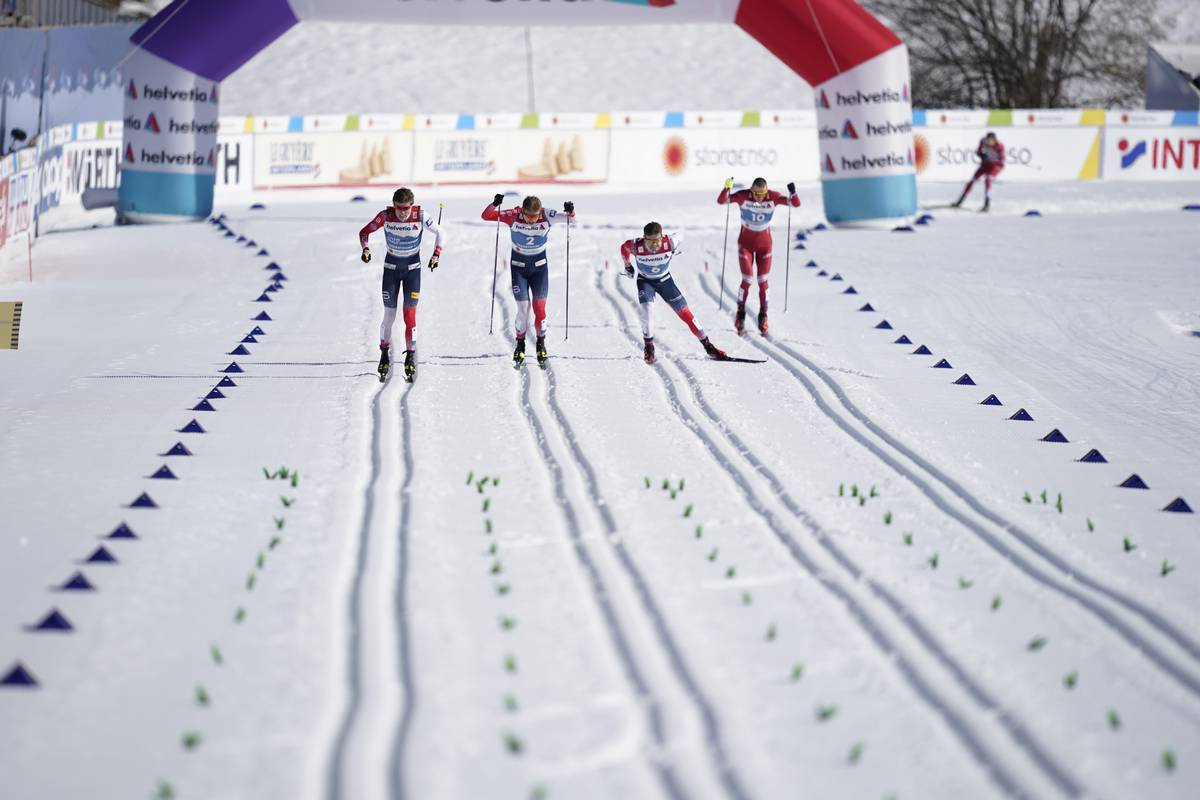
Road to Oberstdorf
Russian coach Alexander Grushin cautions that Bolshunov’s error in judgment in Lahti will cause him further problems with his competitors. “100% that the rivals, knowing Bolshunov’s psychological vulnerability, will deliberately provoke him.”
Some in the Norwegian camp have already sensed this opportunity. Eirik Nossum, the Norwegian coach, has continued to prod, saying, “Now we are wolves, whose breath Bolshunov will feel over the next month.”
The braggadocio from the Norwegian camp heading into the World Championships has proven too shrill for some ears. Simon Fourcade, the French biathlete, has said he will cheer for Bolshunov at the World Champs because he finds Norway’s repetitive boasting to be distasteful.
The hype for the World Championships is magnified all the more by the bad blood, the bragging, and the limited opportunities for Bolshunov to test his competitors this season. Rarely has a Championship felt this important.
Bolshunov for his part seems ready to deal with what may come at the World Championships. “The difference between the ski track and ordinary life is that there are no friends on the track,” Bolshunov has said. “There is a battle on the track – with yourself and with others, there you tear and sword.”
Although he had already secured the overall World Cup title in Falun, there was no celebration from Bolshunov. “There was no particular joy,” reported Borodavko. “…it is already a fait accompli, all the attention and spirit is on the preparation for the World Championship.”
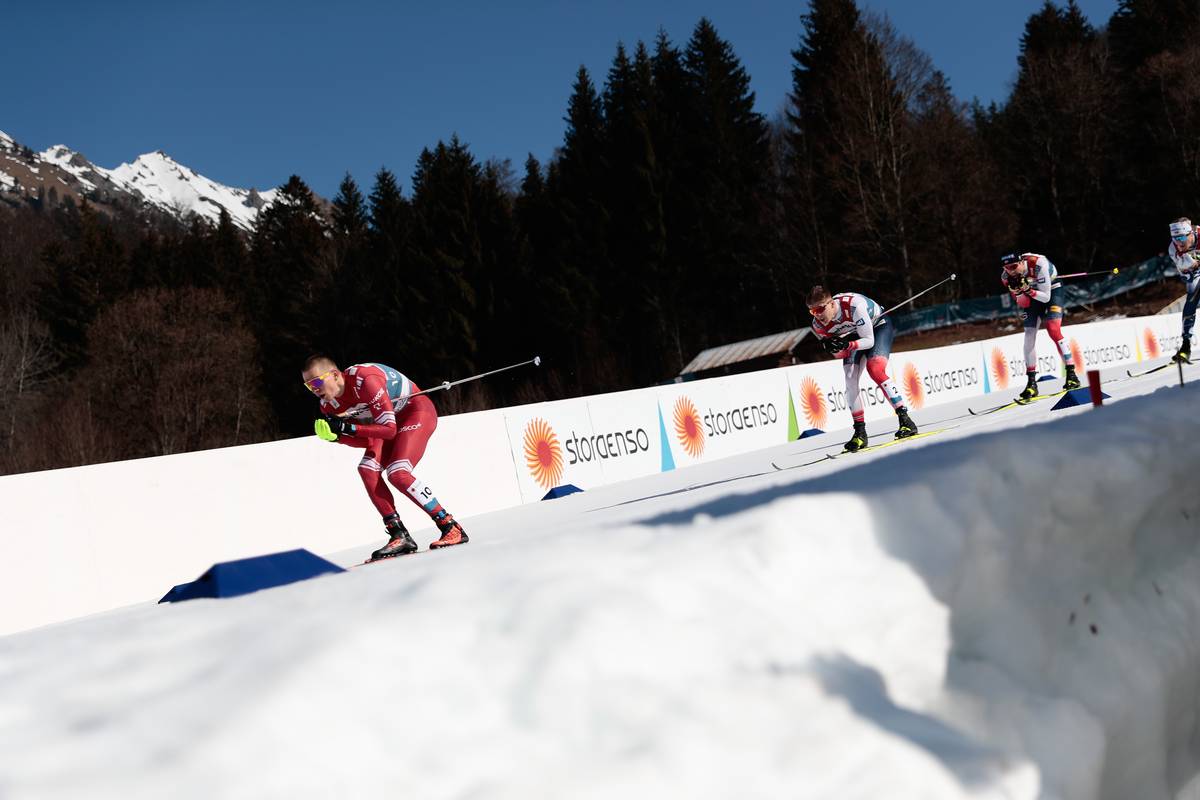
It is the prospect of a World Championship gold medal that tantalizes, and the opportunity to beat his rivals Klæbo, Iversen, really any Norwegian—even Ustiugov. Everyone else is, after all, a rival.
“The biggest thrill is when you cross the finish line first,” says Bolshunov. “Then you understand that everything that was done before was not done in vain.”
He is circumspect about the journey. “There are many buzzes in this story. To give more than a hundred kilometers per day – a thrill. Then to lie down exhausted in the sauna – also a thrill. Then to jump into the lake – such a thrill that you can’t tell. You just have to be able to find it.”
There is a bit of zealotry about Bolshunov. His need to suffer daily in training, the disciplined, monastic life that he leads. The unshakeable desire to train more, to win more, and to dominate his opponents. “Everyone is a patient who has been doing the same thing for 25 years with burning eyes,” he says. “But it’s such a pleasant illness, and it’s not offensive. Each person is sick in their own way.”
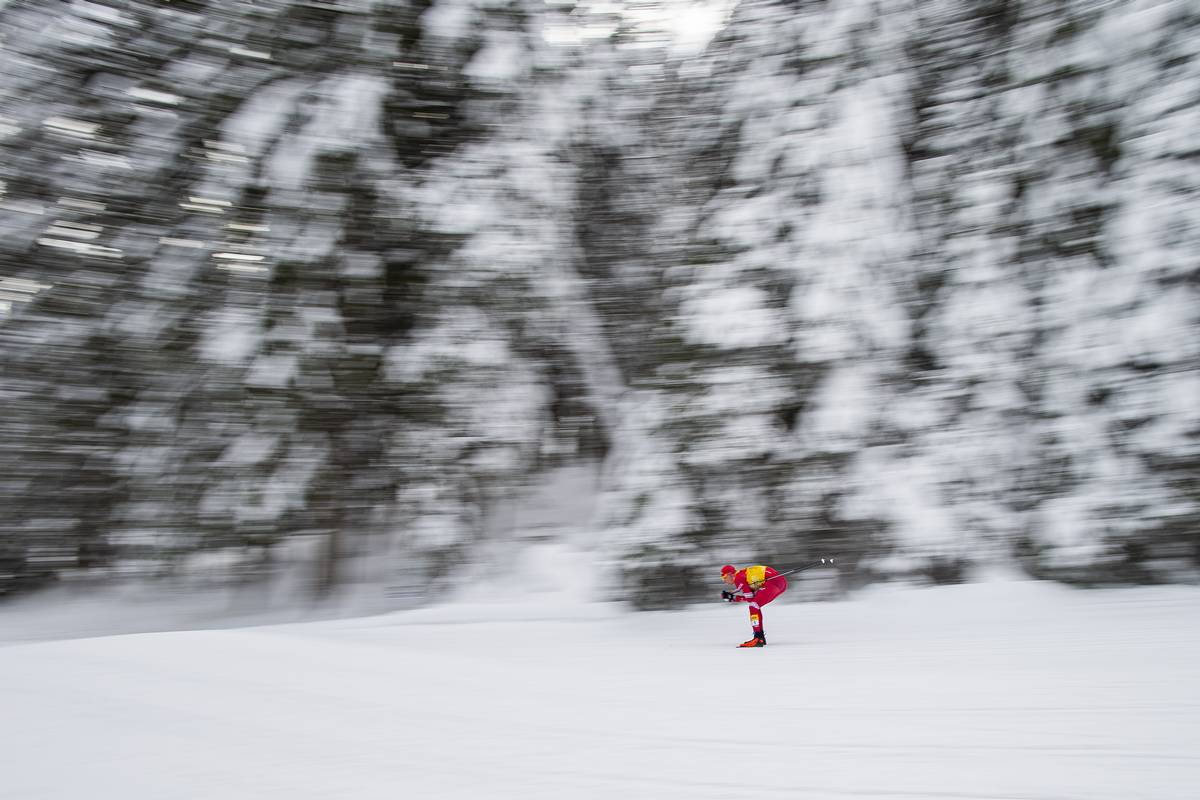
Pasha Kahn
Pasha Kahn writes and coaches in Duluth, Minnesota.



